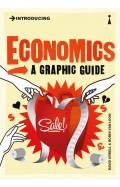A Brief History of Money
By: David Orrell
-
Rs 4,395.00
Due to constant currency fluctuation, prices are subject to change with or without notice.
What do cacao beans, cowrie shells, paper cards, cigarettes and digital databases all have in common? At some time, they have been used as a form of money. Money is an essential aspect of everyday life and something that we usually take for granted until it all goes wrong.
This book traces the role, growth and impact of money and finance on individuals, human civilisation and the type of economy we live in. The financial history of the world reads like a fascinating novel with innumerable twists and turns. We strive for financial stability and security, yet this often proves surprisingly ephemeral. Just as we hope we have reached a new plateau of prosperity, the financial system has a habit of throwing a wrench in the works, forcing us to change and adapt to new circumstances. This book traces the financial system from its birth as a credit system in ancient Mesopotamia, to the financial revolutions of the 20th and 21st centuries.
Why did the American forces desperately try to destroy money during the American Revolution? Why do we tend to succumb to boom and busts? And if inflation is bad, why is deflation even worse? Also, the book looks at the effect money has on ourselves. Does money make us irrational? Is money really the root of all evil, or should we celebrate money for its potential to create prosperity and overcome poverty?
What do cacao beans, cowrie shells, paper cards, cigarettes and digital databases all have in common? At some time, they have been used as a form of money. Money is an essential aspect of everyday life and something that we usually take for granted until it all goes wrong.
This book traces the role, growth and impact of money and finance on individuals, human civilisation and the type of economy we live in. The financial history of the world reads like a fascinating novel with innumerable twists and turns. We strive for financial stability and security, yet this often proves surprisingly ephemeral. Just as we hope we have reached a new plateau of prosperity, the financial system has a habit of throwing a wrench in the works, forcing us to change and adapt to new circumstances. This book traces the financial system from its birth as a credit system in ancient Mesopotamia, to the financial revolutions of the 20th and 21st centuries.
Why did the American forces desperately try to destroy money during the American Revolution? Why do we tend to succumb to boom and busts? And if inflation is bad, why is deflation even worse? Also, the book looks at the effect money has on ourselves. Does money make us irrational? Is money really the root of all evil, or should we celebrate money for its potential to create prosperity and overcome poverty?
Introducing Economics: A Graphic Guide Paperback
By: David Orrell
Rs 1,075.50 Rs 1,195.00 Ex Tax :Rs 1,075.50
Zubin Mehta: A Musical Journey (An Authorized Biography)
By: VOID - Bakhtiar K. Dadabhoy
Rs 892.50 Rs 1,050.00 Ex Tax :Rs 892.50
The Origins of Political Order From Prehuman Times to the French RevolutioN
By: Francis Fukuyama
Rs 4,045.50 Rs 4,495.00 Ex Tax :Rs 4,045.50
Manning Up: How the Rise of Women Has Turned Men into Boys
By: Kay Hymowitz
Rs 895.50 Rs 995.00 Ex Tax :Rs 895.50
The Obama Syndrome: Surrender At Home War Abroad
By: Tariq Ali
Rs 1,100.75 Rs 1,295.00 Ex Tax :Rs 1,100.75
The Quest For Meaning: Developing A Philosophy Of Pluralism
By: Tariq Ramadan
Rs 1,185.75 Rs 1,395.00 Ex Tax :Rs 1,185.75
No similar books from this author available at the moment.
No recently viewed books available at the moment.
Zubin Mehta: A Musical Journey (An Authorized Biography)
By: VOID - Bakhtiar K. Dadabhoy
Rs 892.50 Rs 1,050.00 Ex Tax :Rs 892.50
Introducing Economics: A Graphic Guide Paperback
By: David Orrell
Rs 1,075.50 Rs 1,195.00 Ex Tax :Rs 1,075.50















-120x187.jpg?q6)





-120x187.jpg?q6)







